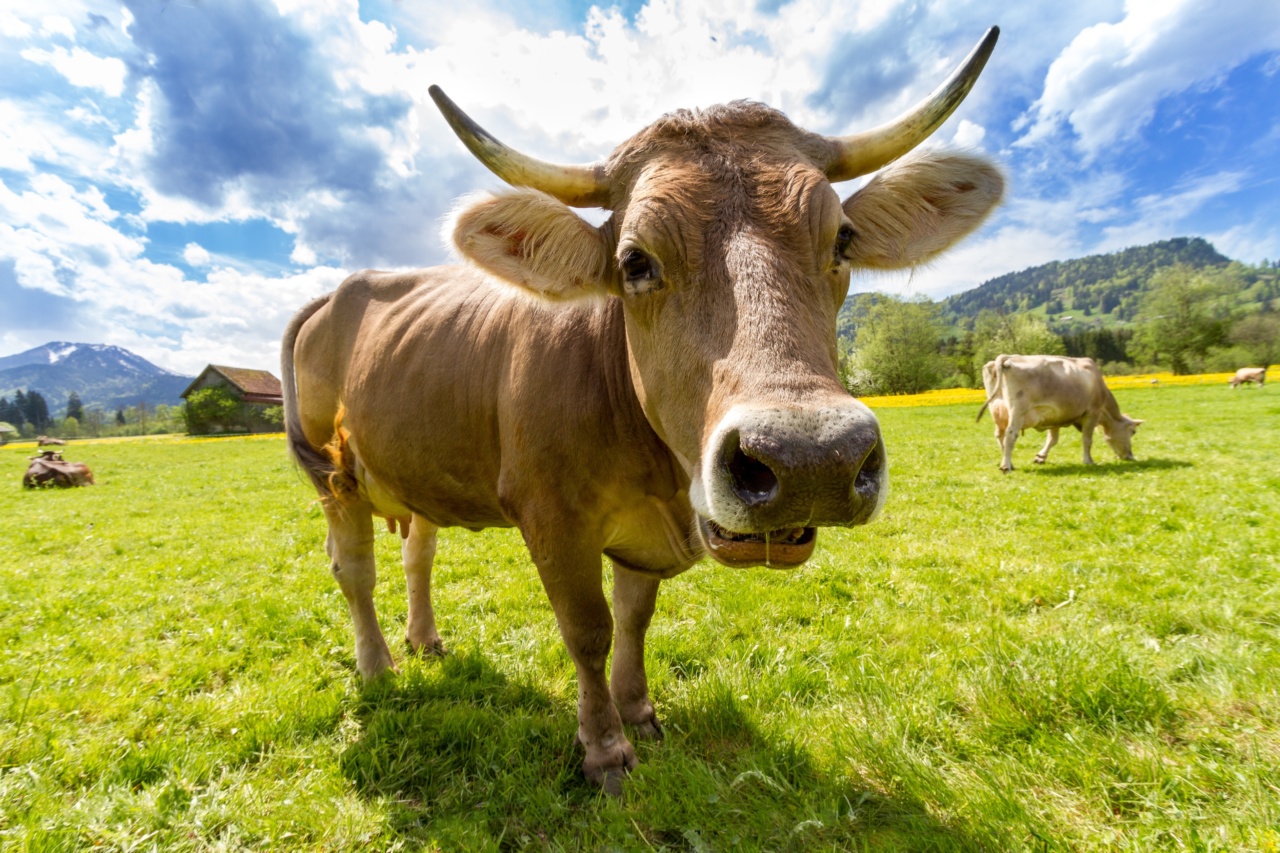Ruminant syndrome, also known as rumination syndrome or rumination disorder, is a relatively rare and often misunderstood gastrointestinal disorder.
It primarily affects ruminant animals such as cows, sheep, and goats, and is characterized by the repetitive regurgitation and re-chewing of partially digested food, known as cud. This article will explore the various factors that can lead to ruminant syndrome, as well as the symptoms and potential complications associated with this condition.
1. Dietary Factors
Dietary factors play a significant role in ruminant syndrome. Animals that are fed a diet low in fiber or excessively high in grain are at an increased risk of developing this condition.
A lack of roughage in the diet can lead to an imbalanced rumen environment, making it difficult for the animals to properly digest their food and increasing the likelihood of regurgitation.
2. Stress and Anxiety
Stress and anxiety can trigger ruminant syndrome in animals. Environmental factors such as overcrowding, sudden changes in diet, transportation, or exposure to new surroundings can all contribute to increased stress levels.
This, in turn, can disrupt the normal rumen functions and lead to the regurgitation of food.
3. Genetic Predisposition
Some animals may be genetically predisposed to developing ruminant syndrome. Certain breeds or individuals within a breed may have a higher susceptibility to this disorder.
While the exact genetic factors involved are not fully understood, it is believed that certain genetic variations can interfere with the proper functioning of the rumen.
4. Gastrointestinal Disorders
Gastrointestinal disorders, such as acidosis or acid indigestion, can contribute to the development of ruminant syndrome. These conditions disrupt the normal pH balance within the rumen and interfere with the proper breakdown of the food.
As a result, the animals may regurgitate their partially digested food to relieve the discomfort and acidity.
5. Behavioral Factors
Behavioral factors can also play a role in the development of ruminant syndrome. Animals that have been improperly weaned or have not learned proper feeding behaviors may resort to regurgitation as a response to hunger or as a learned behavior.
This can perpetuate the cycle of rumination and lead to the development of the syndrome.
6. Lack of Water
A lack of access to clean and fresh water can exacerbate ruminant syndrome. Water is essential for proper rumen function and the digestion process.
Insufficient water intake can lead to changes in rumen consistency, making it harder for the animals to break down the food properly and increasing the likelihood of regurgitation.
7. Nutritional Imbalances
Nutritional imbalances, such as deficiencies or excesses of certain minerals or vitamins, can contribute to ruminant syndrome. These imbalances can disrupt the normal rumen functions and affect the digestive process.
Animals with inadequate nutrition may also exhibit increased regurgitation as a response to the nutritional deficiencies.
8. Ingestion of Foreign Objects
Ingestion of foreign objects can lead to the obstruction or irritation of the rumen, triggering ruminant syndrome.
Animals that graze on contaminated pastures or have access to non-food items may inadvertently consume objects that are difficult to digest. This can disrupt the normal rumen functions and lead to regurgitation.
9. Infection or Inflammation
Infections or inflammation within the gastrointestinal tract can contribute to the development of ruminant syndrome.
Bacterial, viral, or parasitic infections can cause discomfort, pain, or an imbalance in the rumen environment, resulting in regurgitation. Inflammation can also interfere with normal rumen contractions and impair the digestive process.
10. Medications and Medical Treatments
Certain medications or medical treatments can have side effects that increase the risk of ruminant syndrome.
For example, long-term use of nonsteroidal anti-inflammatory drugs (NSAIDs) or corticosteroids can disrupt the normal gastrointestinal functions and contribute to regurgitation. Similarly, the use of anesthesia or other medical procedures may temporarily disrupt rumen activity.
While ruminant syndrome is a complex disorder with multiple contributing factors, understanding these causes can help in its prevention and management.
Prompt diagnosis and appropriate treatment are essential to minimize the impact of this condition on the health and well-being of ruminant animals.





























